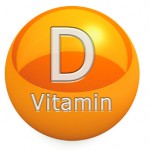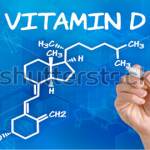All the intervention groups seemed to have a reduced risk of developing autoimmune disease over time, with vitamin D alone and the combination of vitamin D and fish oil reaching statistical significance. Of note, a high-risk population was not studied, and results pertained only to older adults—women older than 55, and men older than 50. Both agents were safe, without an increase in adverse events.
Dr. Costenbader concluded that the “reduced incidence of rheumatoid arthritis (RA) and polymyalgia rheumatica seen in the trial is important for rheumatology, especially given that these are well-tolerated, non-toxic supplements and no other known effective therapies to reduce the incidence of autoimmune diseases exist.”
When asked if she would recommend these supplements to the children of patients with autoimmune disease, she took care to note, “These data do not address whether people under 50 would benefit, and the participants in this trial were not a high-risk population. … If adult children are over 50, then I think the data supports that recommendation.”
Tofacitinib & Risk Factors for CV Events
Christina Charles-Schoeman, MD, MS, professor of medicine, chief of the Division of Rheumatology, University of California, Los Angeles, discussed the ORAL Surveillance study.3 This much-anticipated, phase 3b/4 safety end point study assessed the relative risk of major adverse cardiovascular events and malignancies with 5 or 10 mg of tofacitinib given by mouth twice daily vs. tumor necrosis factor (TNF) inhibitors in patients with active, moderate to severe RA despite methotrexate treatment.
Data showed that in patients with RA who were older than 50 years with one or more cardiovascular (CV) risk factor, the incidence of major adverse cardiovascular events was higher with tofacitinib vs. a TNF inhibitor. Across treatment groups, the baseline covariates of current smoking, aspirin use, age older than 65 years, and being male were the most significant independent overall risk factors for major adverse cardiovascular events in a multivariate analysis.
“Overall, these data emphasize the importance of assessing baseline CV risk when treating patients with RA,” Dr. Charles-Schoeman concluded. “When I see a patient, I tell them the results of the study very briefly, so they understand there may be some risks associated with certain therapies and that we need to weigh those risks and benefits together. It’s our job to know the data so we can provide it to them and counsel them appropriately.”



